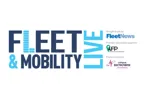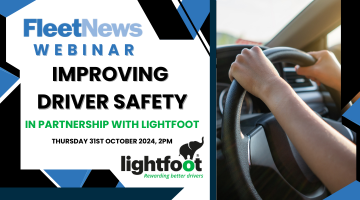Fleets operating cars or commercial vehicles have been warned that the incidence of fraudsters staging crashes is spreading.
Staged crashes involve criminals causing an innocent motorist to drive into them so they can submit often exaggerated claims against the motorist’s insurance company.
Company drivers are particularly at risk because fraudsters know they are most likely to have insurance.
Therefore they are increasingly targeting new cars and liveried vans.
Last year, Fleet News revealed where the country’s staged accident hotspots were and advised fleet managers to warn their drivers should they be required to drive into these areas.
Now a new study has revealed that the problem is spreading from well-known hotspots into neighbouring towns.
The 2009 Motor Fraud Index, which is published by law firm Keoghs as an annual review of suspicious motor insurance claims – has revealed that nine towns closest to the UK’s top 10 motor fraud hotspots are new problem zones, where the number of suspect motor fraud claims has increased steadily over the last year.
Huddersfield, Sheffield, Chester, south east London, Stoke-on-Trent, Leicester, Stockport, Wolverhampton and Romford are all now considered areas where fraudsters are operating.
These new areas join Bradford, which is still generating the highest number of suspicious claims, Birmingham, Blackburn, Liverpool, Oldham, Manchester, Bolton, Southall, Huddersfield and south east London.
Experts at Keoghs – which is the UK’s largest handler of suspect fraudulent claims – said this ‘leaching effect’ is taking place because insurers are now successfully cracking down on fraudsters in the known hotspots.
“The index clearly shows that the regions with the highest levels of suspicious claims activity in the past are still plagued by the problem – with only one of the top 10 worst affected towns changing in the past year,” explained
James Heath, head of counter fraud strategy at Keoghs.
“But our latest study demonstrates that fraudsters may now be seeking softer targets in neighbouring towns.
“This development is not unexpected given the intense efforts by insurers and their legal teams over the last year – but nevertheless it is causing concern.”
Earlier this week, the Association of Chief Police Officers Vehicle Crime Intelligence Service (AVCIS) held a conference to discuss how to tackle vehicle crime, including vehicle fraud.
Detective Chief Inspector Paul Lambotte, head of the AVCIS Unit said: “We’ve achieved a reduction in vehicle crime over the last few years through the good practice and partnership work that has been implemented.
"However, the nature of crime is constantly evolving and we need to be innovative and thoughtful in our approaches.”
Keoghs Motor Fraud Index 2008
- Bradford
- Birmingham
- Liverpool
- Blackburn
- Oldham
- Bolton
- Manchester
- London (E)
- Southall
- Luton
- London (N)
- Twickenham
- London (NW)
- Wakefield
- Leeds
- Harrow
- Preston
- Huddersfield
- London (W)
- Halifax
Advice
- If fleet managers feel one of their drivers have been the victim of a staged crash, they should contact the police, the Insurance Fraud Investigation Group and their insurance company as soon as the possible after the incident.
- Fleet managers should also advise their drivers that if they are involved in a suspicious crash, they should take as many details of the occupants, the damage and the situation as possible
- However they should not put themselves at risk
- Try to get as much information as possible without being confrontational
- Be aware that these are organised criminals, so balance vigilance with personal safety
- The police however will only respond to a crash only when someone is injured.
- However, if a driver is being threatening, intimidated or assaulted at the scene of an accident, the police should be called immediately
- Anyone who believes they have been the victim of a staged accident can call the IFB hotline on 0800 328 2550.

















Login to comment
Comments
No comments have been made yet.